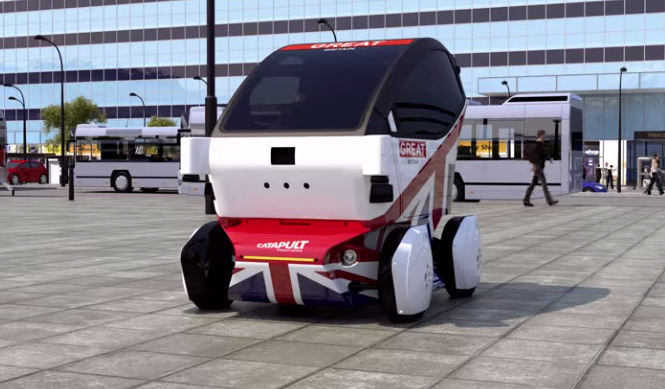The UK is pushing to be one of the world's front-runners when it comes to automated vehicles, with politicians rushing through legislation to allow their usage on our roads and a large scale trial in several different major cities taking place over the next few months. However, not everyone is quite so excited, as a new survey suggests that a lot of people are still pretty wary about it.
DigitalSpy asked 1,636 British adults what they thought of driverless cars and though just shy of 60 per cent of them said they were interested in taking a trip in a car that's piloted all by itself, a surprising 41 per cent said they didn't like the idea. On top of that, of that group, 12 per cent said they would never even consider setting foot in one, believing them to be an unsafe alternative to the human controlled vehicles we have today.
Of those that were pumped for automated cars though, some of them were very optimistic about when we can expect it to catch on with the general public. 29 per cent said that they thought it would take between five and ten years to be accepted, which would come in line with the expected release of fully automated cars sometime in the mid 2020s, whereas 14 per cent believe it will come much sooner than that, taking somewhere between three and five years.

Coventry, Milton Keynes, Bristol and Greenwhich will be taking part in the trials
Some even think it will take less than three years for the public to get onboard with cars that drive themselves (and us) around. However, that seems perhaps a little too optimistic, as we can't expect even motorway driving automated cars to be commercially available until 2017.
Of course, it could take longer than all of those predictions, as with cars that drive themselves entirely only becoming available a decade or so from now, it's going to take at least two before we see large numbers of these vehicles on the roads.
Discuss on our Facebook page, HERE.
KitGuru Says: When do you guys think the public will become accepting of driverless cars? I don't think it will be long. Once enough people have had a safe trip in one, acceptance should snowball. I'm quite tempted to visit one of the cities trialling the tech to have a go in one myself.
 KitGuru KitGuru.net – Tech News | Hardware News | Hardware Reviews | IOS | Mobile | Gaming | Graphics Cards
KitGuru KitGuru.net – Tech News | Hardware News | Hardware Reviews | IOS | Mobile | Gaming | Graphics Cards



I’m in Milton Keynes, i’ve seen them and i want a go!!!
I can’t wait to try one! I really enjoy driving but ultimately if all cars were self driving and communicated with each other the roads would be a much quicker way to get from A to B. We need Total Recall’s Johnny Cabs ASAP!
These changes in automation will further improve how we get from point a to b. With geo spatial validations for GPS navigations and high end car to car communications. We’ll see a day where the only threat is people with malicious intents to interfere with said systems. These laws should be in place to mark severity of such crimes as it involves endangerment of life. I would love these cars, I just don’t want to be anywhere near when the first one gets attacked by a hacker.
I think the biggest annoyance would be speed limit compliances. No one sticks to speed limits and going 10 mph or so higher than what is asked is far from uncommon thusly long journeys will feel even longer. But for the driver maybe that wouldn’t matter for the trade-off of relaxation?
I’m all up for a car that actually respects its surroundings unlike a human driver. It will take years for it to really settle down, not to even mention smaller cities, but i’m glad it will eventually happen. If i had the chance i’d gladly jump into one and give it a shot.
I think that when this comes to the masses and they have proven they’re safe, speed limits will go higher as machines have faster response times then humans do.